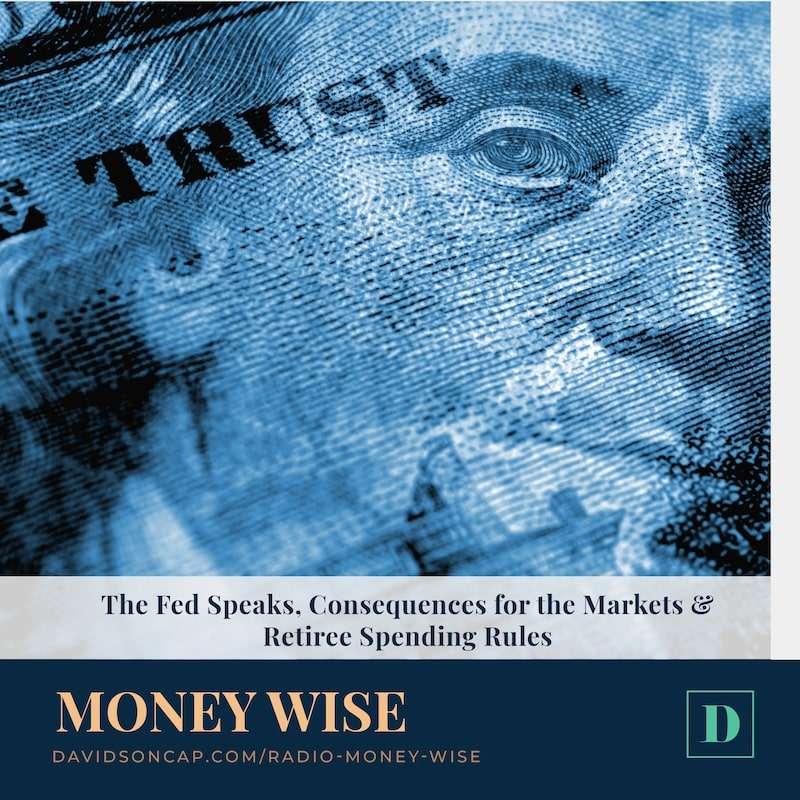Don’t Make These Mistakes When Choosing Your Financial Advisor
Finding the right financial advisor to guide you on your monetary journey is a crucial step toward long-term financial well-being. However, navigating the sea of options can be overwhelming, and it’s easy to make errors as you navigate the various types of advisors, their specialties, and their personal styles. As you’re choosing your financial advisor, avoid the six common mistakes detailed below.
Mistake #1: Failing to Define Your Financial Goals
One of the most common mistakes people make when selecting a financial advisor is not having a clear understanding of their financial goals. Before choosing your financial advisor, take the time to assess your objectives. For example, these might be things like saving for retirement, funding your child’s education, purchasing a home, or starting a business. By defining your goals, you can more effectively communicate your needs to potential advisors. Moreover, having specific goals allows your advisor to develop a tailored financial plan that addresses your unique circumstances.
Mistake #2: Overlooking Qualifications and Experience
When it comes to managing your hard-earned money, expertise matters. It is vital to thoroughly evaluate the qualifications and experience of potential financial advisors. Look for certifications like CERTIFIED FINANCIAL PLANNER™ (CFP) or Chartered Financial Analyst® (CFA), as these demonstrate a high level of competence in the field. These designations require rigorous education, experience, and adherence to ethical standards. Additionally, consider the number of years the advisor has been in practice and their performance track record of success. A seasoned advisor with a proven performance track record can provide valuable insights and guidance based on their extensive experience.
When you’re choosing your financial advisor because you need a trustworthy and reliable investment manager, we suggest looking for two things:
- The advisor holds a Series 65 license
- The advisor is a Registered Investment Advisor (RIA)
When your financial advisor checks both boxes (like we do at Davidson Capital Management), you’ll know that they have the knowledge necessary to help you make smart investment decisions, and that they have a fiduciary duty to use their knowledge to serve your best interests at all times (which is not true of broker-dealers).
SEE ALSO: Setting Financial Goals for Today and Beyond
Mistake #3: Ignoring the Fiduciary Duty
Let’s talk about fiduciary duty a little further because it’s such an important consideration when choosing your financial advisor. A fiduciary is someone who is legally obligated to act in your best interest and avoid conflicts of interest. This is how you can know that the advice you receive, and the investment management decisions are unbiased and align with your financial goals.
It’s usually best to just come right out and ask any potential advisor if they are fiduciaries, and if not, ask them to get specific on how they manage potential conflicts of interest. Non-fiduciary advisors are held to a lower standard, known as the suitability standard, which means they must provide advice that is suitable for your financial situation, but not necessarily in your best interests. We recommend opting for a fiduciary because you automatically get more peace of mind.
Mistake #4: Failing to Understand Fee Structures
The fastest way to add more money to the bottom-line of your portfolio is to keep your management fees low. Understanding the fee structure associated with a financial advisor’s services is crucial to avoid any surprises down the line. Different advisors have varying fee structures, such as commission-based, fee-only, or a combination of both. Commission-based advisors earn a commission from the financial products they sell, while fee-only advisors charge a fee based on a percentage of the assets they manage or an hourly rate for their services. Fee-only advisors are typically considered more transparent, as their compensation is not tied to specific product sales, and this is the fee structure we use at Davidson Capital Management.
When choosing your financial advisor, ask anyone you meet with to provide a breakdown of their fees, including any additional charges for specific services. This transparency will help you make an informed decision based on your budget and financial goals. Keep in mind that while fee-only advisors may appear to be more cost-effective, it’s essential to evaluate the value they provide in terms of personalized advice, comprehensive financial planning, and ongoing support.
It’s also critically important to understand the management fees for any investment option bought in your portfolio. If an advisor can’t clearly explain the investment option annual fees in their portfolio this would be a serious red flag. Another important question to ask the advisor is if they or the firm that employees them receives revenue sharing from the fees being charged by the investment options in their portfolio. If the answer is yes, this is another serious red flag because revenue sharing agreements create a conflict of interest and remove objectivity of the investment options in the portfolio.
Mistake #5: Neglecting to Assess Communication Style
Choosing your financial advisor has a lot to do with money, of course. However, it’s also important that you mess with the advisor’s personality and style. At Davidson Capital Management, we believe that effective communication is essential for a successful client-advisor relationship. It’s important to find an advisor who understands your needs, listens attentively, and communicates in a manner that resonates with you. During the initial meetings or consultations, pay attention to how the advisor explains complex financial concepts and whether they take the time to address your concerns. A good advisor will take the time to educate you on various investment strategies, risk management, and other financial matters. Building a rapport based on clear and open communication will foster a productive partnership.
SEE ALSO: Avoid These Investor Psychology Traps
Mistake #6: Disregarding the Importance of a Personal Connection
While qualifications and expertise are crucial, and a match in communication styles is helpful, you want to feel a personal connection when choosing your financial advisor, too. A strong rapport and a sense of trust are vital for a successful partnership. During the initial meetings or consultations, pay attention to how comfortable you feel discussing your financial matters with the advisor. They should listen attentively, respect your opinions, and address any concerns or questions you may have. Remember, you will be sharing intimate details about your financial life, so it’s essential to have confidence in your advisor’s ability to understand your unique circumstances and provide sound guidance.
Final Thoughts on Choosing Your Financial Advisor
Choosing the right financial advisor is a big decision and requires careful consideration. By being intentional and thoughtful with your search and making sure you avoid the common mistakes listed above, you can confidently select a financial advisor who will guide you towards your financial goals. Remember, finding the right fit is essential for a successful long-term partnership that promotes your financial well-being. Like many things in life, if you take your time, ask the right questions, and trust your gut, you can make an informed decision when choosing your financial advisor and find one who aligns with your unique needs and goals.
If you’re looking for a Texas financial advisor, we can help. At Davidson Capital Management, our team of experienced professionals is dedicated to actively navigating your portfolio through the complexities of the investment world and make informed investment decisions that promote your long-term financial well-being. Take the first step towards securing your financial future by contacting us today.




